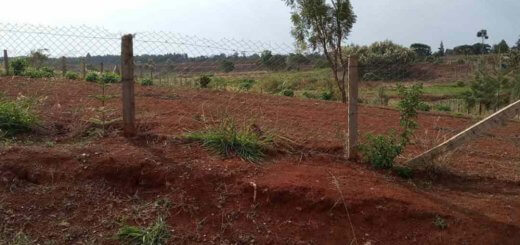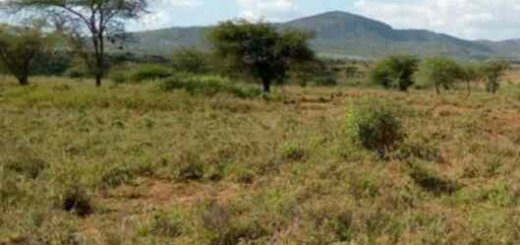Best Guide on How to File a Land Case in Kenya: A Step-by-Step Guide in 2024


land cases
Introduction to Filing a Land Case in Kenya
Land disputes are a common occurrence in Kenya, often arising from issues such as boundary disagreements, fraudulent land sales, and conflicting ownership claims. When these disputes arise, it is crucial to resolve them through legal means to ensure a fair and just outcome. Understanding how to file a land case in Kenya is essential for anyone involved in a land dispute. This comprehensive guide provides a step-by-step approach to filing a land case, outlining the necessary land documents, legal procedures, and key considerations.
Understanding Land Disputes
Land disputes can take various forms, including boundary disputes, ownership conflicts, illegal land occupation, and issues related to land use and zoning. These disputes can involve individuals, families, communities, and even government entities. Resolving land disputes legally helps protect property rights and maintain order in land ownership and use.
Importance of Land Documents in Land Disputes
Land documents play a critical role in resolving land disputes. They provide legal proof of ownership, outline property boundaries, and detail any transactions or agreements related to the land. Key land documents include title deeds, land search certificates, sale agreements, and boundary maps. Ensuring that all relevant documents are in order is essential for building a strong case.
Steps to Filing a Land Case in Kenya
Filing a land case in Kenya involves several steps, from gathering necessary land documents to presenting the case in court. Here’s a detailed overview of the process:
Gather Necessary Land Documents
The first step in filing a land case is gathering all relevant land documents. These documents provide evidence to support your claim and are crucial for the court’s assessment. Key land documents include:
Title Deed
The title deed is the primary document proving land ownership. It indicates who legally owns the land and provides details such as the size and location of the property. Ensure that the title deed is genuine and up-to-date.
Land Search Certificate
A land search certificate, obtained from the Ministry of Lands, confirms the current ownership status of the land and reveals any encumbrances or legal issues associated with the property. Conducting a land search is essential to verify ownership and ensure that the land is free from disputes.
Sale Agreement
If the land was purchased, the sale agreement provides details of the transaction, including the purchase price, payment terms, and the parties involved. This document can help establish the legitimacy of the ownership claim.
Boundary Map
A boundary map or cadastral map shows the exact boundaries and dimensions of the land. This document is crucial in boundary disputes and helps establish the precise location of the property.
Other Relevant Documents
Other relevant documents may include land rent receipts, rates payment receipts, and any correspondence or agreements related to the land. Collect all documents that can support your claim and provide a comprehensive picture of the property’s history and ownership.
Seek Legal Advice
Before proceeding with a land case, it is advisable to seek legal advice from a qualified lawyer specializing in land law. A lawyer can provide guidance on the merits of your case, help gather and organize necessary land documents, and represent you in court. Legal advice ensures that you understand your rights and obligations and that your case is presented effectively.
Attempt Alternative Dispute Resolution (ADR)
Before filing a case in court, consider attempting Alternative Dispute Resolution (ADR) methods such as mediation or arbitration. ADR can be a faster, less adversarial, and more cost-effective way to resolve land disputes. It involves negotiating with the other party to reach a mutually acceptable solution. Many land disputes in Kenya are successfully resolved through ADR, avoiding the need for lengthy court proceedings.
File a Case in the Environment and Land Court
If ADR is unsuccessful or not suitable, the next step is to file a case in the Environment and Land Court. The Environment and Land Court is a specialized court established to handle land and environmental disputes in Kenya. Here’s how to file a case:
Prepare a Plaint
A plaint is a formal written complaint that initiates a lawsuit. It outlines the details of the dispute, the parties involved, and the relief sought. Your lawyer will help draft the plaint, ensuring that it includes all necessary information and adheres to legal requirements.
Attach Supporting Documents
Attach all relevant land documents to the plaint, including the title deed, land search certificate, sale agreement, boundary map, and any other supporting evidence. These documents provide the basis for your claim and are essential for the court’s assessment.
File the Plaint in Court
Submit the plaint and supporting documents to the Environment and Land Court. The court will assign a case number and schedule a hearing date. Pay the required filing fees, which vary depending on the nature and value of the claim.
Serve the Defendant
Serve a copy of the plaint and supporting documents to the defendant (the party you are suing). Service of process ensures that the defendant is officially notified of the case and has an opportunity to respond. Service can be done through personal delivery, registered mail, or other approved methods.
Attend Court Hearings
Both parties will be required to attend court hearings, where they will present their arguments and evidence. The court will assess the evidence, hear witness testimonies, and evaluate legal arguments before making a judgment. Your lawyer will represent you in court and advocate on your behalf.
Obtain the Court’s Judgment
After considering all the evidence and arguments, the court will issue a judgment. The judgment may include orders to rectify land records, enforce property rights, or award damages. If you are dissatisfied with the judgment, you may have the right to appeal to a higher court.
 Role of the National Land Commission (NLC)
Role of the National Land Commission (NLC)
The National Land Commission (NLC) plays a pivotal role in land management and dispute resolution in Kenya. Established under the Constitution of Kenya 2010, the NLC is tasked with ensuring that land use and management are conducted in a manner that is efficient, equitable, and sustainable. The commission has a broad mandate that covers various aspects of land administration, including policy formulation, dispute resolution, and oversight of public land. Here is an expanded look at the key functions and roles of the NLC:
Land Policy and Administration
One of the primary functions of the NLC is to develop and implement land policies. These policies are designed to ensure sustainable land use, equitable access to land, and efficient land management practices. The NLC works closely with the Ministry of Lands and other stakeholders to formulate policies that address the challenges facing Kenya’s land sector, such as land fragmentation, urban sprawl, and environmental degradation.
Management of Public Land
The NLC is responsible for the management and administration of public land on behalf of the national and county governments. This includes allocating public land for various uses, such as infrastructure development, conservation, and public amenities. The commission ensures that the allocation of public land is conducted transparently and in accordance with the law. It also oversees the leasing and renewal of leases for public land to ensure compliance with regulatory requirements.
Investigation and Adjudication of Land Disputes
The NLC has the authority to investigate and adjudicate land disputes. This includes disputes related to land ownership, boundaries, and land use. The commission conducts investigations, holds hearings, and makes determinations to resolve conflicts. By providing a platform for dispute resolution, the NLC helps to reduce the burden on the judicial system and ensures that land disputes are resolved fairly and efficiently.
Review of Historical Land Injustices
The NLC is mandated to review claims of historical land injustices and recommend appropriate redress. Historical land injustices refer to land grievances that arose during the colonial and post-colonial periods, leading to displacement and loss of land rights for certain communities and individuals. The commission examines these claims, conducts investigations, and makes recommendations for restitution, compensation, or other forms of redress to address past injustices and promote social justice.
Oversight of Land Registries
The NLC oversees the functioning of land registries to ensure that land records are accurately maintained and accessible. The commission works to modernize land registries by promoting digitization and the use of technology in land administration. This includes efforts to create a central land information system that integrates land records from various regions, enhancing transparency and efficiency in land transactions.
Land Use Planning and Development Control
The NLC plays a key role in land use planning and development control. The commission collaborates with county governments and other planning authorities to develop and implement land use plans that promote sustainable development. This includes zoning regulations, urban planning, and rural land use management. The NLC ensures that land use planning is aligned with national development goals and environmental conservation efforts.
Protection of Environment and Natural Resources
The NLC is involved in the protection and conservation of the environment and natural resources. This includes overseeing the allocation and management of land designated for conservation purposes, such as national parks, forests, and wildlife reserves. The commission works to balance land development with environmental sustainability, ensuring that natural resources are preserved for future generations.
Public Education and Awareness
The NLC is committed to promoting public education and awareness about land rights, land laws, and land management practices. The commission conducts outreach programs, workshops, and seminars to educate the public about their land rights and responsibilities. By raising awareness, the NLC empowers citizens to make informed decisions about land use and to protect their land rights.
Advisory Role
The NLC provides advisory services to the government and other stakeholders on matters related to land management and policy. This includes advising on land reforms, legislative amendments, and the implementation of land policies. The commission’s expertise and recommendations help to shape national land strategies and ensure that land management practices are aligned with best practices and legal standards.
Monitoring and Evaluation
The NLC monitors and evaluates the implementation of land policies, laws, and programs. This involves assessing the effectiveness of land management practices, identifying challenges, and recommending improvements. The commission’s monitoring and evaluation efforts help to ensure accountability and continuous improvement in land administration.
Handling Compulsory Land Acquisitions
The NLC is involved in the compulsory acquisition of land for public purposes. When the government needs to acquire private land for infrastructure projects, public utilities, or other national interests, the NLC ensures that the process is conducted fairly and in accordance with the law. The commission oversees the valuation and compensation process to ensure that affected landowners receive fair compensation for their property.
Collaboration with Stakeholders
The NLC collaborates with various stakeholders, including government agencies, county governments, civil society organizations, and the private sector, to promote effective land management. By working together with different entities, the commission fosters a coordinated approach to land administration and addresses complex land issues through a multi-stakeholder perspective.
Enforcing Court Orders
Once the court issues a judgment, it is essential to enforce the court orders to resolve the dispute effectively. Enforcement may involve registering changes in land ownership, evicting illegal occupants, or executing orders for compensation. Failure to comply with court orders can result in legal penalties and further litigation.
 Importance of Accurate Land Records
Importance of Accurate Land Records
Legal Clarity and Security
Accurate land records offer legal clarity and security to landowners by clearly documenting the ownership status of a piece of land. According to Kenya’s land laws, a title deed is the ultimate proof of ownership. This document, along with other land records, helps prevent disputes over ownership by providing indisputable evidence of who owns the land. When land records are accurate, they reduce the chances of fraudulent claims and illegal land transactions, thereby protecting the rights of legitimate landowners.
Efficient Land Transactions
Accurate land records facilitate smooth and efficient land transactions. They ensure that all necessary information about a property is readily available, making it easier for buyers and sellers to verify ownership and understand the history of the land. This transparency is mandated by Kenya’s land laws, which require thorough documentation and verification during land transactions. By having up-to-date land records, the process of transferring ownership, obtaining financing, and registering new titles becomes more streamlined and less prone to errors or delays.
Conflict Resolution
Land disputes are common in Kenya and can arise from unclear boundaries, multiple claims of ownership, or fraudulent transactions. Accurate land records play a critical role in resolving these disputes. According to the land laws, having precise and comprehensive records helps establish the facts in a dispute, making it easier for courts and other dispute resolution mechanisms to make fair judgments. The Environment and Land Court, for example, relies heavily on accurate land records to adjudicate cases and ensure justice is served.
Economic Development
Accurate land records are vital for economic development. They provide a foundation for land-based investments and development projects by offering investors and developers confidence in the legal status and value of the land. Clear and accurate land records are essential for securing loans and financing, as financial institutions require verifiable proof of ownership before approving loans for land purchases or development. Kenya’s land laws support this by ensuring that land transactions are properly documented and registered, promoting a stable and secure investment environment.
Urban Planning and Development
Urban planning and development rely on accurate land records to make informed decisions about land use, zoning, and infrastructure development. In Kenya, land laws and policies are designed to guide sustainable urban development, and accurate records are crucial for implementing these plans effectively. Precise land records help planners and developers understand the existing land use patterns, identify areas for development, and allocate resources efficiently. This, in turn, supports the growth of well-organized and sustainable urban areas.
Environmental Conservation
Environmental conservation efforts benefit significantly from accurate land records. These records provide detailed information about land ownership and use, which is essential for managing natural resources and protecting environmentally sensitive areas. Kenya’s land laws include provisions for conserving natural resources and ensuring sustainable land use practices. Accurate land records help enforce these laws by identifying and protecting areas that require conservation, such as forests, wetlands, and wildlife habitats.
Enhancing Public Confidence
Public confidence in the land administration system is bolstered by the accuracy and reliability of land records. When citizens trust that land records are accurate and up-to-date, they are more likely to engage in land transactions, invest in property, and comply with land laws and regulations. This trust is essential for maintaining social stability and encouraging economic growth. In Kenya, the Ministry of Lands and Physical Planning is responsible for maintaining accurate land records and ensuring that the public has access to reliable information about land ownership and transactions.
Role of Technology in Maintaining Accurate Land Records
Technology plays a crucial role in maintaining and updating land records. Digital land registration systems, Geographic Information Systems (GIS), and other technological tools have revolutionized the way land records are managed. In Kenya, the adoption of digital land registration and management systems has improved the accuracy, accessibility, and transparency of land records. These systems help reduce the risk of fraud, streamline land transactions, and ensure that records are kept up-to-date.
Challenges in Maintaining Accurate Land Records
Despite the importance of accurate land records, maintaining them can be challenging. Common challenges include:
Inconsistent Record-Keeping
Inconsistent record-keeping practices can lead to discrepancies and errors in land records. Ensuring that all land transactions are properly documented and registered is essential for maintaining accuracy.
Land Grabbing and Fraud
Land grabbing and fraud are significant issues in Kenya. These illegal activities can distort land records and undermine the integrity of the land administration system. Strict enforcement of land laws and robust verification processes are necessary to combat these problems.
Resource Constraints
Limited financial and human resources can hinder efforts to maintain accurate land records. Investing in modern technology, training personnel, and improving infrastructure are crucial for overcoming these constraints.
Public Awareness and Education
Raising public awareness about the importance of accurate land records and educating citizens about their rights and responsibilities under land laws can help improve the overall quality of land records. Encouraging landowners to regularly update their records and report any discrepancies is essential for maintaining accuracy.
Challenges in Filing Land Cases
Filing a land case in Kenya can be a complex and daunting process, often fraught with various challenges. These challenges can stem from the intricate nature of land laws, bureaucratic hurdles, and other socio-economic factors. Understanding these challenges is crucial for anyone involved in land disputes, as it helps in preparing adequately and seeking appropriate solutions. This section delves into the common challenges faced when filing land cases in Kenya, emphasizing the role of land laws in navigating these difficulties.
Lengthy Court Proceedings
One of the most significant challenges in filing land cases in Kenya is the lengthy court proceedings. The Environment and Land Court, which handles land disputes, often experiences a backlog of cases. This backlog can result in extended delays, with some cases taking years to resolve. The slow pace of judicial processes can be frustrating and costly for the parties involved, particularly for those seeking urgent resolution.
The lengthy proceedings are exacerbated by the complexity of land laws, which require meticulous examination of land documents, witness testimonies, and legal arguments. Additionally, the limited number of judges specializing in land cases can contribute to the delays. To mitigate these issues, the judicial system needs to allocate more resources and streamline procedures to expedite the resolution of land disputes.
Legal and Bureaucratic Complexities
Navigating the legal and bureaucratic complexities of land disputes is another major challenge. Kenya’s land laws are extensive and multifaceted, covering various aspects of land ownership, transfer, and use. Understanding and complying with these laws requires expertise and diligence. The process of gathering necessary land documents, filing a case, and presenting evidence in court involves several legal and procedural steps that can be overwhelming for individuals without legal training.
Moreover, bureaucratic hurdles such as obtaining Land Control Board consent, registering transfers, and securing clearance certificates can add to the complexity. These processes often require dealing with multiple government offices and officials, which can be time-consuming and prone to delays. Engaging a qualified lawyer who specializes in land law is essential to navigate these complexities and ensure compliance with all legal requirements.
Corruption and Fraud
Corruption and fraud present significant obstacles in filing and resolving land cases in Kenya. Issues such as fraudulent land sales, forged documents, and bribery can undermine the legal process and complicate land disputes. Corruption can manifest in various forms, from unscrupulous individuals selling land they do not own to officials accepting bribes to alter land records or influence court decisions.
The prevalence of corruption and fraud makes it challenging to secure justice in land cases. Ensuring the authenticity of land documents, conducting thorough due diligence, and working with reputable professionals are critical steps in mitigating these risks. Strengthening anti-corruption measures and promoting transparency in land transactions and judicial processes are also necessary to address this challenge.
Inadequate Access to Legal Resources
Inadequate access to legal resources is another challenge faced by individuals filing land cases. Many people, particularly those in rural areas, may lack access to qualified legal representation and information about land laws. This lack of access can hinder their ability to navigate the legal system effectively and protect their property rights.
Additionally, the cost of legal services can be prohibitive for some individuals, preventing them from securing the necessary representation. Legal aid programs and initiatives aimed at providing affordable legal services to underserved communities are essential to bridge this gap and ensure that all individuals can access justice.
Boundary and Ownership Disputes
Boundary and ownership disputes are common types of land cases that can be particularly challenging to resolve. These disputes often arise from unclear or contested boundaries, multiple claims to the same piece of land, or historical land issues. Resolving such disputes requires accurate land records, boundary surveys, and sometimes historical documentation, which may not always be readily available.
The complexity of these disputes is compounded by Kenya’s diverse land tenure systems, including freehold, leasehold, and customary tenure. Each system has its own set of rules and regulations, making it challenging to resolve disputes that involve multiple tenure types. Accurate and up-to-date land records, along with clear land laws, are essential for addressing boundary and ownership disputes effectively.
Environmental and Social Considerations
Environmental and social considerations can also pose challenges in filing land cases. Issues such as environmental degradation, displacement of communities, and conflicting land uses can complicate land disputes. For example, cases involving land near protected areas, water sources, or culturally significant sites may require additional considerations and approvals from environmental and heritage authorities.
Balancing the need for development with environmental protection and social justice requires careful planning and adherence to relevant land laws and regulations. Engaging with stakeholders, including affected communities and environmental experts, is crucial to address these considerations and ensure a fair and sustainable resolution.
Lack of Public Awareness and Education
A lack of public awareness and education about land laws and rights can hinder the resolution of land disputes. Many individuals may not be fully aware of their legal rights, the importance of land documents, or the procedures for filing a land case. This lack of awareness can lead to misunderstandings, exploitation, and difficulties in accessing justice.
Public education campaigns, legal literacy programs, and community outreach initiatives are essential to raise awareness about land laws and empower individuals to protect their property rights. Providing accessible information and resources can help individuals understand their rights and navigate the legal system more effectively.
Inconsistent Land Policies
Inconsistent land policies and overlapping jurisdictions can create confusion and complicate the resolution of land disputes. Different levels of government (national and county) and various institutions (such as the National Land Commission and local land registries) may have conflicting policies or interpretations of land laws.
Harmonizing land policies and ensuring clear and consistent regulations are essential to address this challenge. Coordination among government agencies and transparent communication with the public can help streamline processes and reduce inconsistencies.
Conclusion
Filing a land case in Kenya involves a detailed and systematic process that requires gathering necessary land documents, seeking legal advice, and following legal procedures. Land documents such as title deeds, land search certificates, sale agreements, and boundary maps are crucial for building a strong case and providing evidence of ownership. Alternative Dispute Resolution (ADR) methods should be considered before filing a case in court, as they can offer a faster and more cost-effective solution. If ADR is unsuccessful, the Environment and Land Court provides a legal avenue for resolving land disputes.



